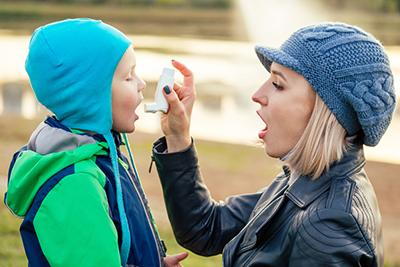
When you find out that your child has asthma, it’s important to know that they can still participate in their favorite activities and play just as well as other children. As long as you are taking control of managing your child’s asthma, you should find that flare-ups can be rare but manageable. There are ways that you can help your child live their best life and enjoy all their favorite sports without the fear of having an asthma attack.
Managing Your Child’s Asthma
It’s important that you’re creating a routine that your child can stick to that will help them learn to manage their asthma in the future. Your child’s pediatrician will give you instructions on what medications your child should be taking and you need to make sure that your child sticks to it. Monitor their routine and guide them through the process so that they can feel comfortable with their medication and managing their asthma.
Be sure that you’re able to identify what could trigger your child’s asthma. Common triggers could be pollen, mold, or changes in the weather. It may take time to properly identify triggers, but this can pay off in the long run. You’ll be able to avoid these triggers or understand how to combat them if your child does come in contact.
Be sure that you can recognize the signs of a flare-up before it becomes severe. Identify early warning signs and be ready to adjust your child’s medications as needed or spot and find the trigger before the flare-up happens. If your child is having a severe flare-up, be sure to seek medical attention as soon as possible.
Contact Your Pediatrician Today
Help your child breathe easily. Contact your pediatrician today to find out more about learning to manage your child’s asthma symptoms.
